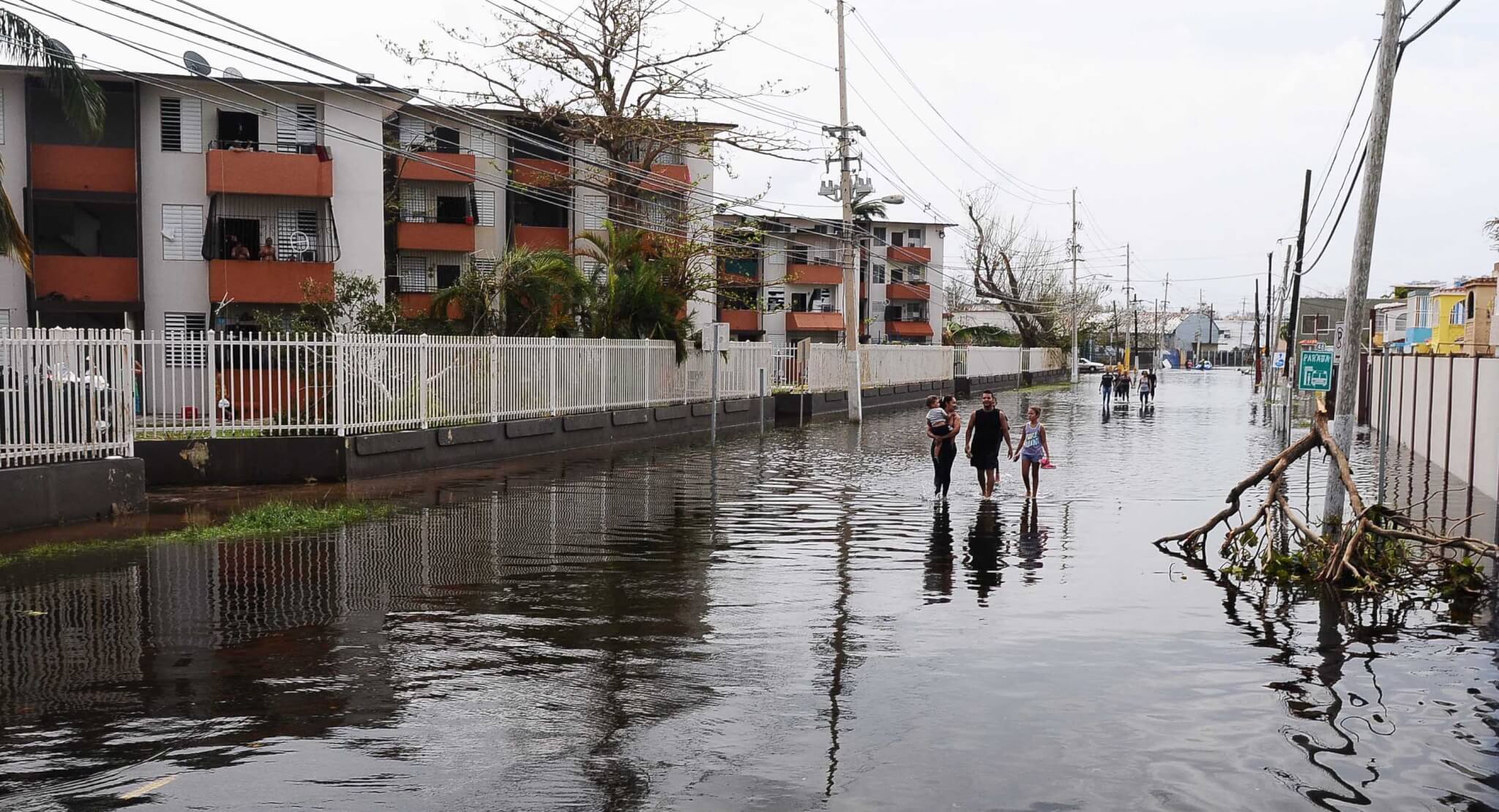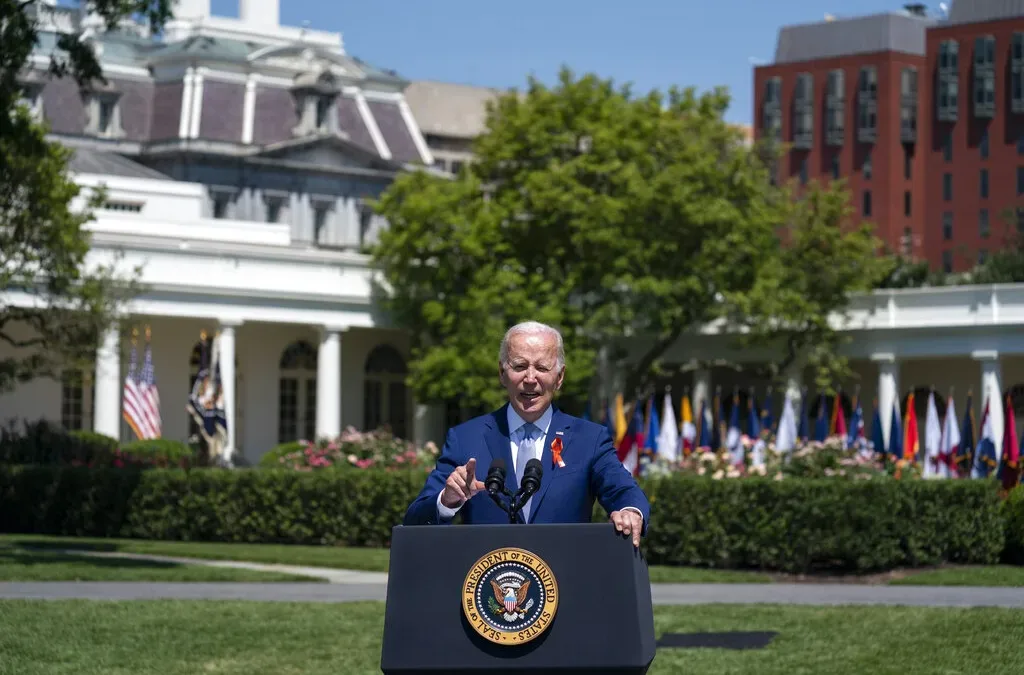
When you look at the world around us — with its hatred and bitterness, with its disagreements and divisiveness — the quality most lacking today is empathy.
We find it difficult, if not impossible, to put ourselves in each other’s shoes and see events and issues from their perspective.
Whether we realize it or not, all of us are guilty of this at some time or another — the D’s, the R’s and the independents. All of us have too much of the it’s-our-way-or-the-highway mentality.
Some of us grumble about the football players taking a knee during the National Anthem. Some of don’t see any merit in their concerns about the treatment of blacks.
And some of us fail to grasp our president’s appeal to those who have become disillusioned by the paralysis in Washington, D.C., and by our political system and its obstructionism.
There’s another area where our nation’s empathy is lacking these days, too. That deals with the pace of recovery efforts in Puerto Rico and the U.S. Virgin Islands.
This lack of empathy is being fueled, in large part, by our president’s callous and insulting comments. Some of us fail to recognize the enormous undertaking that is being expected of the federal government with these one-two-three punches from hurricanes. And others of us, yes, including the president, don’t recognize the desperate predicament residents of islands are in.
Our president has implied that Puerto Ricans are waiting for government help to reach them and are not doing enough to help themselves and their island’s cleanup and recovery.
He has given a much-too-rosy picture of the federal government’s work there and the status of the recovery.
And he thinks the media is deliberately giving a too negative picture of conditions in Puerto Rico.
The president is absolutely correct about one thing, though: The hurricanes did deliver a catastrophic blow to the islands.
But the president’s critics are spot on, too. The pace of the recovery operations has lagged from the beginning since Hurricane Maria made landfall on Sept 20. And some Puerto Rican leaders and many residents are angry about the laggardly pace.
Put yourself in their shoes. Try to empathize with these American citizens. How you would feel and how would you have responded if this happened to you and your friends and your relatives?
What would your reaction be when you learned that two weeks after the hurricane, only about 7,200 U.S. military personnel had reached Puerto Rico — in contrast with the 22,000 U.S. troops that reached Haiti in 2010 in the first two weeks after that country’s devastating earthquake?
Two and a half weeks after the Sept. 20 storm pounded Puerto Rico, what would your reaction be if nearly all of you were still without electrical service? If most of you were still without cell phone service? If most of you were still without clean drinking water? How would you react if roads were still blocked, bridges were still out, and fuel, food supplies and medicine still had not reached your community?
A high school classmate of mine points out that Puerto Rico is about 100 miles long and about 35 miles wide. That is about the same dimensions as the area between U.S. Highway 34 in southern Iowa and the Missouri border and between the Mississippi River and Albia and Centerville in east central Iowa. And Bloomfield is in this Puerto Rican-sized chunk of Iowa.
The population of Puerto Rico is about 3.4 million, nearly the same as Iowa’s population.
How would Iowans feel if all of the people of our state lived in this Puerto Rican-sized swath of southern Iowa, if a tornado brought the same kind of near-total devastation that Hurricane Maria brought to the island, if outside help was cut off from reaching us, if our tractors and trucks and other means of transportation were out of commission because fuel tanks were empty, if most of the schools were still closed, if people stood in line for 10 to 12 hours a day in hopes of getting one or two cans of gasoline, and if people had to resort to drinking from streams and ditches because there was still no running water or bottled water available in their isolated community?
This is where empathy comes in.
This is why we should avoid judging others before we stop to consider their plight and how the predicament they are facing is shaping their views and comments and the anguish of their leaders.
This is what we should do, even if we are the president of the United States.
by Randy Evans
Reprint from Bloomfield Democrat
Photo via Defense Department
Posted 11/12/17
Politics

Biden announces new action to address gun sale loopholes
The Biden administration on Thursday announced new action to crack down on the sale of firearms without background checks and prevent the illegal...

Biden cancels student loan debt for 2,690 more Iowans
The Biden administration on Friday announced its cancellation of an additional $7.4 billion in student debt for 277,000 borrowers, including 2,690...
Local News

No more Kum & Go? New owner Maverik of Utah retiring famous brand
Will Kum & Go have come and gone by next year? One new report claims that's the plan by the store's new owners. The Iowa-based convenience store...

Here’s a recap of the biggest headlines Iowa celebs made In 2023
For these famous Iowans, 2023 was a year of controversy, career highlights, and full-circle moments. Here’s how 2023 went for the following Iowans:...




